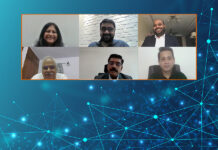Traditional therapies and modes of treating illnesses have received renewed interest around the world over the last few years. Such traditional knowledge often embodies the knowledge, practices, indigenous methods of treatment and folklore of diverse communities that have typically been transmitted orally from one generation to another and are unique to a given geographical region. With the evolution of global standards of IP protection, it has become necessary to protect and preserve these traditional treasures from misappropriation and bio-piracy.

Lawyer
Lex Orbis IP Practice
India achieved a significant milestone in this regard last year; by digitizing entire texts of roughly 200,000 traditional medical formulations, transforming them from Sanskrit, Arabic, Persian, Urdu and Tamil texts into one traditional knowledge digital library (TKDL) in English. An important aspect of this documentation is that drug companies will now be unable to base their preparations on ancient formulations without permission and the communities holding this knowledge will derive due benefit from it.
The Centre for Scientific and Industrial Research (CSIR) together with the Ministry of Health & Family Welfare’s Department of Ayurveda, Yoga & Naturopathy, Unani, Siddha and Homeopathy (AYUSH) was instrumental in creating this library from information in the public domain. The expensive lessons learnt from the revocation of patents on neem and turmeric prompted the creation of this digital library. It contains text-searchable English-language translations of these sources and thus documents on prior art that allow examiners to search the extensive database to prevent misappropriation. Further, about 200 yoga postures are set to be included in the database. The European Patent Office was granted first access to this database, followed by the US Patent and Trademarks Office (USPTO), which was recently allowed access. This has enhanced the importance of the database, which earlier was thought to be purely of academic importance.
You must be a
subscribersubscribersubscribersubscriber
to read this content, please
subscribesubscribesubscribesubscribe
today.
For group subscribers, please click here to access.
Interested in group subscription? Please contact us.
你需要登录去解锁本文内容。欢迎注册账号。如果想阅读月刊所有文章,欢迎成为我们的订阅会员成为我们的订阅会员。
Abhai Pandey is a lawyer with Lex Orbis IP Practice, a law firm specializing in intellectual property issues.
709/710 Tolstoy House, 15-17 Tolstoy Marg
New Delhi – 110 001
India
Tel: +91 11 2371 6565
Fax: +91 11 2371 6556
Email: mail@lexorbis.com



























